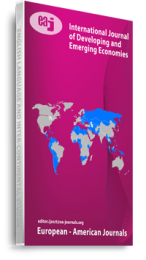This study investigated per capita income convergence in member countries of ECOWAS and the prospect of petroleum trade providing the needed catalyst to cause their per capita incomes to converge to ECOWAS average. The neoclassical growth model framework was used to examine absolute and conditional convergence among the member countries. The descriptive statistics shows that the mean value of per capita GDP in ECOWAS is $555.0; the median value is $544.8. The maximum is $1286.5 and minimum is $309.513. An inspection of the data indicates that most countries in ECOWAS had per capita income below ECOWAS average hence the need to aim at a convergence towards an average of per capita income within ECOWAS. The models specified include absolute and conditional convergence. Pedroni cointegration tests were used to test for stationarity and cointegration. The results indicate some evidence for a stationary behavior of the residuals and concluded that there exists a panel-cointegrating relationship between per capita income, non oil trade and population. Although there is evidence of absolute convergence, it did so with a slow annual speed of 1.6 per cent. But the conditional β-convergence based on non-oil trade and other variables consistently sustained the convergence with higher annual speeds ranging from 2.1 to 2.5 per cents. The study recommended that common Non-oil trade policies should consider absolute and comparative advantages of member countries in moderating rules on trade liberalization and integration process. Petroleum trade should also be encouraged in the ECOWAS sub region and there should be internal integration with each member state based on political stability, inclusiveness and equity.
Keywords: Convergence, Non oil trade., Petroleum trade

